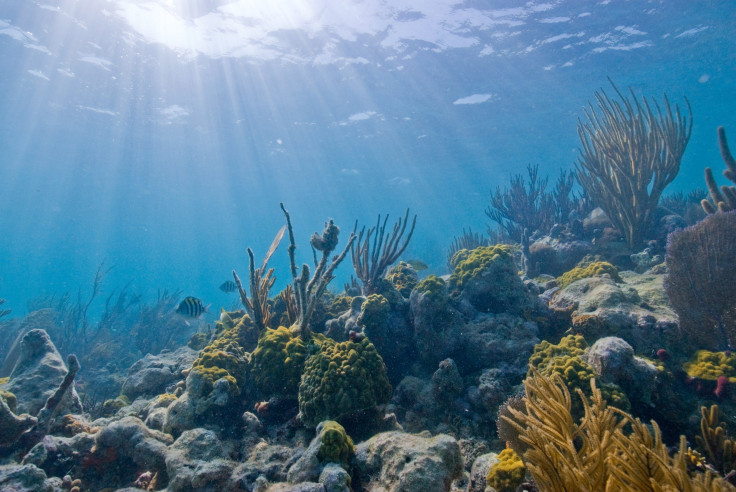Climate Change To Affect Florida Coral Reefs Sooner Than Thought; Bleaching Outbreaks Could Be Widespread By 2030

Lawmakers’ move to expunge the terms “climate change” and “global warming” from Florida’s official vocabulary hasn’t erased the threat facing the state’s coral reefs, which could be hit by widespread coral bleaching events sooner than scientists previously thought. By 2030, ocean waters around Florida’s southern coasts could become warm enough to kill vast swaths of coral reef, about 12 years earlier than previously thought, a study by climate scientists with the National Ocean and Atmospheric Administration indicates.
Coral bleaching, which occurs when environmental changes cause coral to become stressed and expel the algae living in its tissue, is already one of the leading killers of Florida’s coral reefs, but hardly the only one. Coastal runoff, overfishing and other disturbances have heavily damaged Florida’s delicate reef systems in the past several decades.
Rising ocean temperatures in the Gulf of Mexico and Caribbean would only exacerbate the problems facing Florida’s coastal ecosystems, scientists say. "Those things are already important but they become even more critical knowing that coral bleaching is going to become more of a problem in the future," Frank Wasson, president of Spree Expeditions, which leads dive trips near Key West, said in a statement. Scientists fear that by mid-century, coral bleaching could affect large areas of Biscayne Bay, Key Largo, the middle Keys and Dry Tortugas National Park, a prime tourist destination about 70 miles west of Key West known for its crystal clear waters and abundant marine life.
Despite the state being one of the most vulnerable to rising sea levels and increased ocean temperatures, Florida residents remain divided in the climate change debate. In March, Gov. Rick Scott, a Republican, tried to bar the terms “climate change” and "global warming" from being used by the state’s environmental agency because of their association with man-made global warming. While the directive wasn’t a formal prohibition, employees of the Florida Department of Environmental Protection said they were told to stop using the terms in official reports and discussions. The unofficial ban sparked outrage among environmental activists and scientists across the country who said such attitudes were shortsighted and ignored scientific consensus.
Climate change doesn’t just affect Florida’s coral reefs but others around the world. Previous studies have found coral ecosystems in the western South Pacific and Indian oceans face increasingly severe bleaching outbreaks as ocean temperatures continue to rise. Jennifer Koss, acting program manager for NOAA's Coral Reef Conservation Program, in a February statement called climate change and its impacts “the most pressing global threats to coral reef ecosystems today."
© Copyright IBTimes 2024. All rights reserved.












